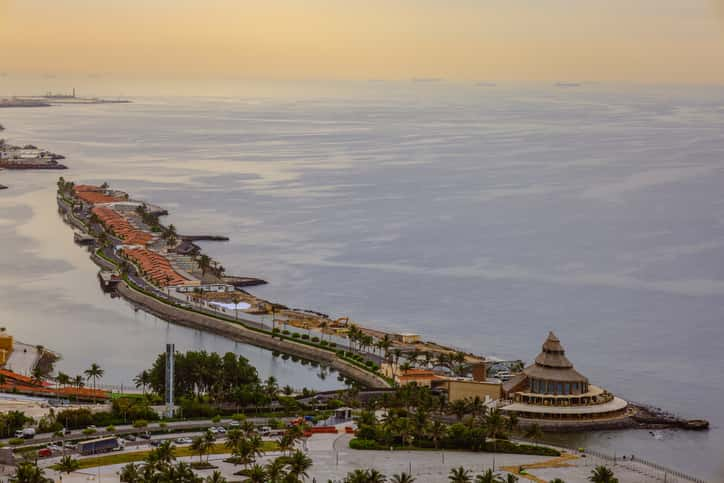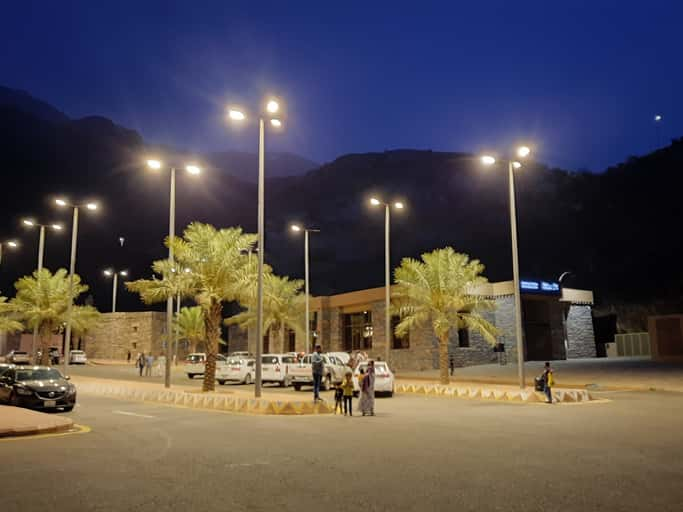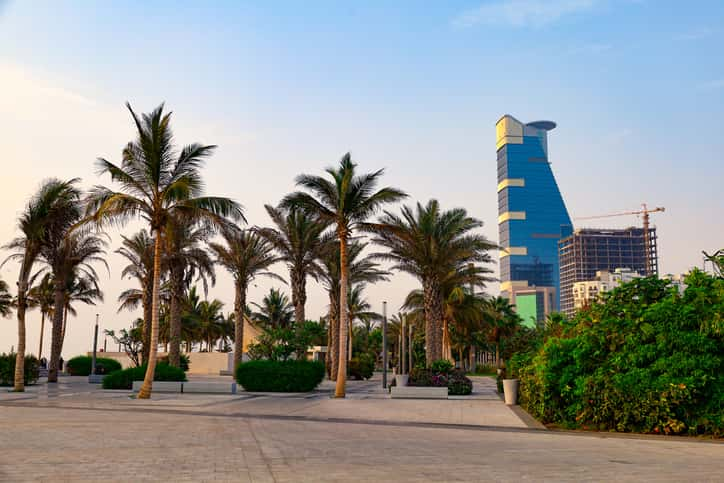Al Baha, located in southwestern Saudi Arabia, is a scenic mountain city known for its cool weather, rich heritage, and lush green landscapes. Often referred to as the "Pearl of Resorts," Al Baha offers visitors a refreshing escape with its forests, valleys, historic stone villages, and unique architecture. Whether you're exploring the ancient village of Dhee Ayn or hiking through the Raghadan Forest Park, Al Baha is a tranquil and captivating destination perfect for nature lovers and culture seekers.
Al Baha, a hidden gem nestled in the southwestern region of Saudi Arabia, is a captivating destination that offers a unique blend of natural beauty, rich history, and vibrant culture. This mountainous area is renowned for its stunning landscapes, traditional architecture, and hospitable locals, making it an ideal spot for travelers seeking an authentic Saudi experience. we will explore the various facets of Al Baha, from its breathtaking scenery to its cultural significance, and why it should be on your saudi tour.
Majestic Mountains and Valleys:
Al Baha is characterized by its dramatic topography, featuring a series of mountains and valleys that create a picturesque backdrop. The Sarawat Mountains, which stretch across the region, are home to lush greenery and diverse flora and fauna. The valleys, such as the Al-Aqiq Valley, are adorned with terraced farms and vibrant gardens, showcasing the agricultural heritage of the area.
Key Features:
Sarawat Mountains: A range that offers hiking trails and stunning views.
Al-Aqiq Valley: Known for its fertile land and traditional farming practices.
Climate and Best Time to Visit:
The climate in Al Baha is generally mild, with cooler temperatures in the summer months compared to other regions in Saudi Arabia. The best time to visit is during the spring and autumn when the weather is pleasant, making it ideal for outdoor activities and exploration.
Spring (March to May): Mild temperatures and blooming flowers.
Autumn (September to November): Comfortable weather for hiking and sightseeing.
Cultural Heritage and Historical Significance:
Traditional Architecture:
Al Baha is famous for its unique architectural style, which reflects the region's cultural heritage. The traditional houses, often made of stone and mud, feature intricate designs and are built to withstand the local climate. The village of Dhi Ain is particularly notable for its well-preserved structures that date back centuries.
Dhi Ain Village: A UNESCO World Heritage site showcasing traditional architecture.
Festivals and Local Customs:
The people of Al Baha celebrate various festivals throughout the year, highlighting their rich cultural traditions. The Al Baha Summer Festival is a prominent event that attracts visitors from across the country, featuring local crafts, music, and traditional cuisine.

Al Baha Summer Festival: A celebration of local culture and heritage.
Traditional Music and Dance: Performances that showcase the region's artistic expressions.
Natural Attractions and Outdoor Activities:
Parks and Nature Reserves:
Adventure Sports:
For those seeking adrenaline-pumping activities, Al Baha offers various adventure sports, including paragliding, mountain biking, and rock climbing. The rugged terrain and stunning landscapes provide the perfect backdrop for these thrilling experiences.
Popular Activities:
Culinary Delights of Al Baha:
Traditional Cuisine:
Al Baha's culinary scene is a reflection of its rich cultural heritage. The local cuisine features a variety of dishes made from fresh ingredients, with an emphasis on traditional cooking methods. Visitors can savor dishes such as Kabsa, a spiced rice dish with meat, and Jareesh, a wheat-based dish often served during special occasions.
Must-Try Dishes:
Kabsa: A flavorful rice dish with spices and meat.
Jareesh: A traditional wheat dish, often enjoyed during celebrations.
Local Markets and Food Festivals:
The local markets in Al Baha are vibrant and bustling, offering a wide range of fresh produce, spices, and handicrafts. Food festivals held throughout the year provide an opportunity to taste local delicacies and experience the region's culinary traditions.

Ancient Ruins and Archaeological Sites:
Al Baha is rich in history, with several archaeological sites that provide insight into the region's past. The ruins of ancient settlements, such as the Al-Baha Fort, showcase the architectural styles and defensive strategies of earlier civilizations.
Al-Baha Fort: A historical site that offers a glimpse into the region's past.
Museums and Cultural Centers:
To further explore the history and culture of Al Baha, visitors can visit local museums and cultural centers. These institutions often feature exhibits on traditional crafts, local history, and the region's natural environment.
Al Baha Museum: A place to learn about the region's history and culture.
Accessibility and Transportation
Getting to Al Baha
Al Baha is accessible by road and air, making it convenient for travelers. The nearest airport is Al Baha Domestic Airport, which connects the region to major cities in Saudi Arabia. Additionally, well-maintained roads make it easy to drive to Al Baha from nearby cities.
Transportation Options:
Air Travel: Fly into Al Baha Domestic Airport.
Road Travel: Drive from major cities like Jeddah and Riyadh.
Local Transportation:
Once in Al Baha, visitors can use taxis or rental cars to explore the area. Public transportation options are also available, making it easy to navigate the region.
Taxis and Ride-Sharing: Convenient for short trips around the city.
Rental Cars: Ideal for exploring the surrounding areas at your own pace.
Accommodation Options:
Hotels and Resorts:
Al Baha offers a range of accommodation options, from luxury hotels to budget-friendly guesthouses. Visitors can choose from modern amenities or traditional stays that reflect the local culture.
Luxury Hotels: Experience comfort and elegance in upscale accommodations.
Guesthouses: Enjoy a more intimate and local experience.
Camping and Eco-Lodges
For nature lovers, camping and eco-lodges provide a unique way to experience the natural beauty of Al Baha. These options allow visitors to immerse themselves in the stunning landscapes while enjoying outdoor activities.
Camping Sites: Perfect for those who want to connect with nature.
Eco-Lodges: Sustainable accommodations that promote environmental awareness.
Tips for Travelers:
Cultural Etiquette:
When visiting Al Baha, it's essential to respect local customs and traditions. Dress modestly, especially when visiting religious sites, and be mindful of local etiquette during interactions with residents.
Dress Code: Modest clothing is recommended.
Respect Local Customs: Be aware of cultural practices and traditions.
Safety and Health Precautions:
Al Baha is generally safe for travelers, but it's always wise to take standard safety precautions. Stay hydrated, especially during outdoor activities, and be aware of your surroundings.
Health Tips:
Stay Hydrated: Drink plenty of water, especially in warmer months.
Emergency Contacts: Familiarize yourself with local emergency numbers.
Conclusion:
Al Baha is a must-visit destination for anyone looking to explore the natural beauty and rich culture of Saudi Arabia. With its stunning landscapes, historical significance, and warm hospitality, this region offers a unique travel experience that is both enriching and memorable. Whether you're an adventure seeker, a history buff, or a food enthusiast, Al Baha has something to offer everyone. Plan your visit today and discover the wonders of this enchanting destination.
Discover unforgettable Saudi tours and exciting trips to Saudi Arabia! From ancient heritage sites to modern attractions.

Find Related Tours


© Copyright 2024 Go Saudi Arabia Trips. All Rights Reserved.